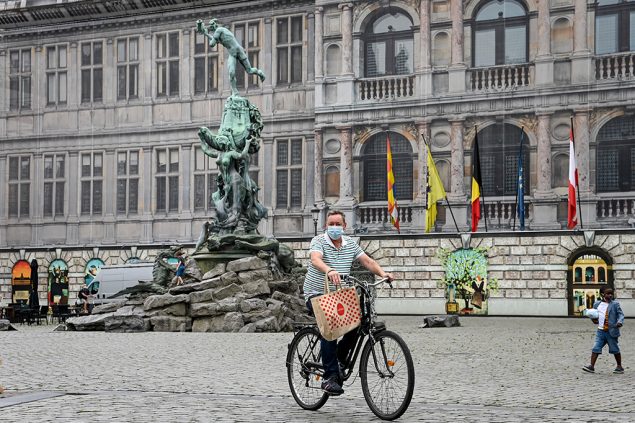Flanders and Wallonia, currently both green zones on the European Centre for Disease Prevention and Control (ECDC)'s travel map, will likely turn orange again soon, experts stated at a press conference on Wednesday.
As a 66% increase in infections was reported over the past week, Belgium's coronavirus figures are rising sharply again after a long period of decline, according to virologist and interfederal Covid-19 spokesperson Steven Van Gucht.
"That rise means more than 200 extra infections a day, and we expect it to rise in the coming days," he said. "Flanders and Wallonia are still coloured green on the European map today, but this will probably change to orange again soon."
Countries or regions are given a green colour on the ECDC map if they have an incidence rate of fewer than 50 confirmed cases per 100,000 inhabitants over the past two weeks, which will no longer be the case for both regions.
Related News
- 'Fourth wave is already underway in Europe,' says Belgian expert
- Cyprus and parts of Spain turn red again on European travel map
- Brussels remains orange on European travel map
Flanders turned green on the map on 24 June for the first time in a long time, and Wallonia only followed last Friday. The Brussels-Capital Region, however, remains orange.
The European colour codes are used by Member States to impose conditions on returning travellers, such as mandatory testing or quarantine. The colour code of a region is also taken into account for the admission of travellers in their own countries.
Member States cannot impose extra restrictions on travellers coming from a green area, but they can demand testing and/or quarantine from (unvaccinated) people coming from orange zones.
The current increase in infections is only seen in people under 60 years old, according to Van Gucht. "Among the over-60s, the figures are still falling."
"The rise is most pronounced in teenagers and people in their twenties, which now account for more than half of all new cases," he added. "More specifically, it is young people between 18 and 24 in whom we currently find the most cases."

